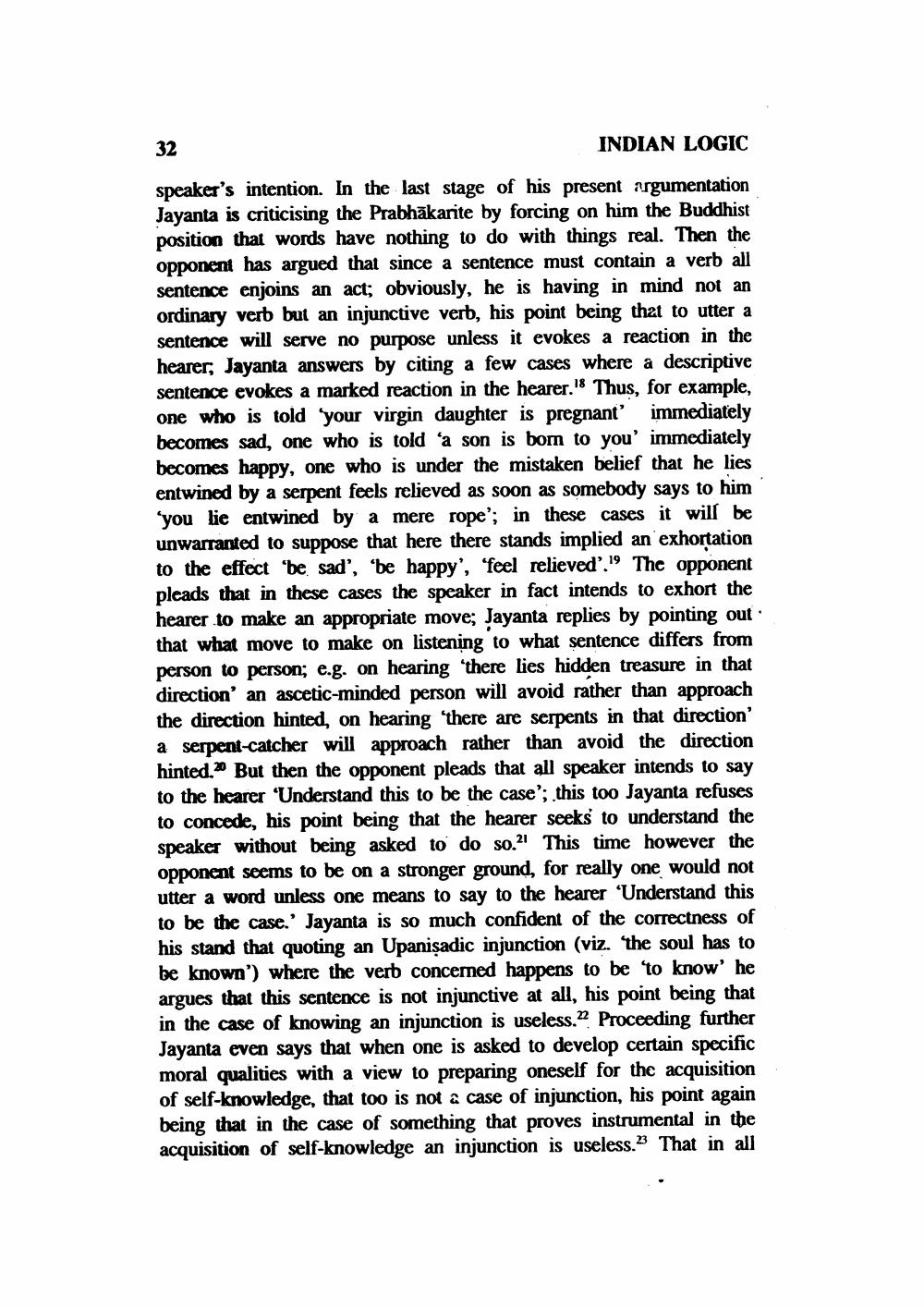________________
32
INDIAN LOGIC
speaker's intention. In the last stage of his present argumentation Jayanta is criticising the Prabhākarite by forcing on him the Buddhist position that words have nothing to do with things real. Then the opponent has argued that since a sentence must contain a verb all sentence enjoins an act; obviously, he is having in mind not an ordinary verb but an injunctive verb, his point being that to utter a sentence will serve no purpose unless it evokes a reaction in the hearer, Jayanta answers by citing a few cases where a descriptive sentence evokes a marked reaction in the hearer. Thus, for example, one who is told your virgin daughter is pregnant' immediately becomes sad, one who is told 'a son is born to you' immediately becomes happy, one who is under the mistaken belief that he lies entwined by a serpent feels relieved as soon as somebody says to him you lie entwined by a mere rope'; in these cases it will be unwarranted to suppose that here there stands implied an exhortation to the effect be, sad', 'be happy', 'feel relieved'." The opponent pleads that in these cases the speaker in fact intends to exhort the hearer to make an appropriate move; Jayanta replies by pointing out that what move to make on listening to what sentence differs from person to person; e.g. on hearing there lies hidden treasure in that direction' an ascetic-minded person will avoid rather than approach the direction hinted, on hearing there are serpents in that direction' a serpent-catcher will approach rather than avoid the direction hinted.” But then the opponent pleads that all speaker intends to say to the hearer ‘Understand this to be the case'; this too Jayanta refuses to concede, his point being that the hearer seeks to understand the speaker without being asked to do so.21 This time however the opponent seems to be on a stronger ground, for really one would not utter a word unless one means to say to the hearer 'Understand this to be the case.' Jayanta is so much confident of the correctness of his stand that quoting an Upanisadic injunction (viz. the soul has to be known') where the verb concerned happens to be 'to know' he argues that this sentence is not injunctive at all, his point being that in the case of knowing an injunction is useless.2. Proceeding further Jayanta even says that when one is asked to develop certain specific moral qualities with a view to preparing oneself for the acquisition of self-knowledge, that too is not a case of injunction, his point again being that in the case of something that proves instrumental in the acquisition of self-knowledge an injunction is useless. That in all




